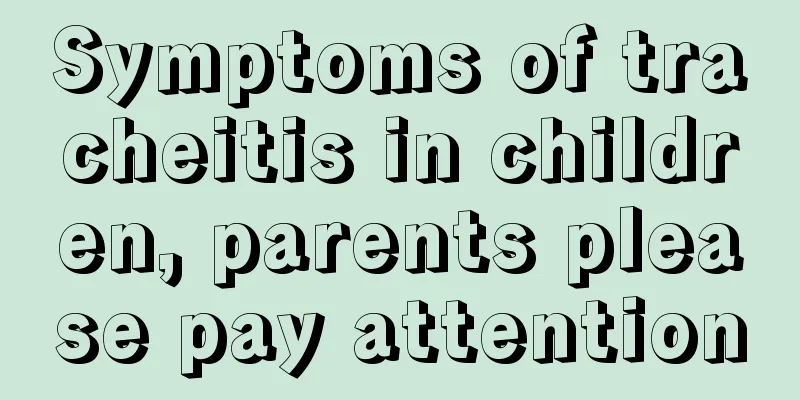Signs of a baby overeating during the confinement period

|
During the confinement period, parents should pay special attention to the baby's diet, because if the milk supply is not enough, it will have a great impact on the baby's healthy development. However, if the baby eats too much, the baby’s stomach digestion function will not be very good, which will also affect the baby’s health. Therefore, many parents are worried about their babies eating too much during the confinement period. So how do you determine if your baby is overfed during the confinement period? Parents, let’s learn together.
When a baby is very hungry, all his attention is on the food he is eating, and he will not look anywhere else for a moment. Of course, unless the baby hears some loud noises or strange sounds, the baby will only focus on his food. But if you find that the baby starts to look around, no longer paying attention to the food, but twisting around, it means the baby is full, so stop feeding the baby. 2. Avoid twisting your body If the baby is full and you are still feeding him, he will show resistance, turn away and stop eating, and may grab your hand that is feeding you and keep dodging (don't think that the baby is playing with you at this time), bite the spoon you put into his mouth, and the most direct way is to spit it out. 3. Frequent vomiting Newborns will spit up when they eat too much, but this is not the usual spitting up caused by not burping, but rather frequent spitting up. Babies who are bottle-fed are especially likely to be overfed. This is because parents who bottle-feed their babies will encourage their babies to eat more based on the amount they think the baby should eat. This can easily cause the baby to eat too much, suffer from indigestion, and form milk curds when spitting up milk.
Another symptom of babies eating too much is diarrhea, because if they eat too much and cannot digest it, it can easily hurt their stomach and intestines. Because you eat too much, your stomach and intestines are bloated, but the stomach's function of transporting food downward continues, so feces are discharged from the body little by little, and this is how diarrhea occurs.
Another sign that a newborn baby eats too much is crying. The baby's crying is not without reason, it is caused by discomfort in the lower abdomen, bloating or abdominal pain. |
<<: Symptoms of overeating in babies
>>: Transparent small blisters on baby's hands
Recommend
Treatment of vomiting caused by gastroenteritis in children
Vomiting due to gastroenteritis in children is no...
What to do if your child has low IQ
Everyone's IQ is different, and the same is t...
The order of adding complementary food to children
When the baby is about four months old, we will s...
What can babies eat to have white skin?
The condition of the baby's skin is determine...
Baby's redness and swelling under the eyes
Babies' skin is very delicate. The skin of mo...
What to do if there is a bump on the back of the newborn's head
There are many common problems for newborns. In s...
Three month old baby has yellow loose stools
Three-month-old babies are in the golden period o...
What foods can help short children grow taller?
If a child is too short, then you need to pay att...
Can I turn on the air conditioner when my child has a fever?
In the hot summer, air conditioning has become a ...
What is the reason for eye mucus in children?
Anyway, parents all know that children's eyes...
The child's lumbar curvature becomes straight
Straightening of the lumbar curvature is a relati...
What should I do if my child has dampness in his stomach?
Children's physical health has always been a ...
The child has a stuffy nose and snores
The baby's body resistance is poor, and they ...
How can we improve children's immunity?
I believe that many people often got sick and wen...
What are the symptoms of acute pharyngitis in children?
Acute pharyngitis is one of the most common disea...









